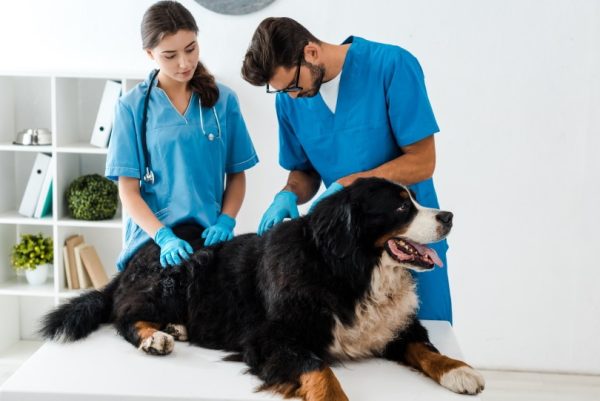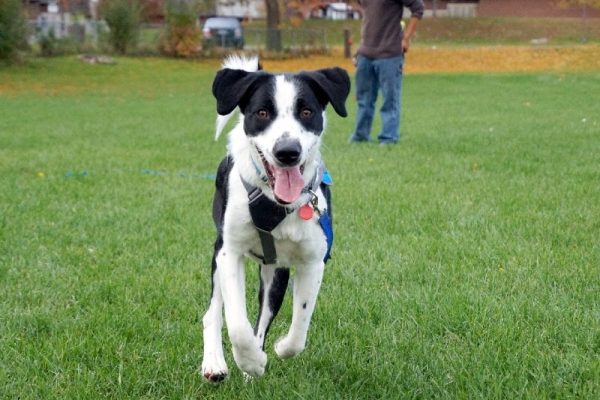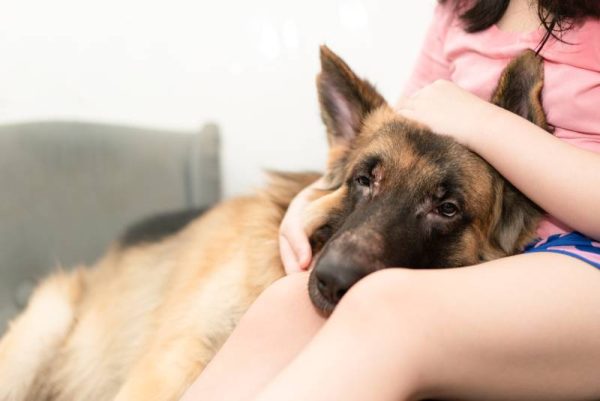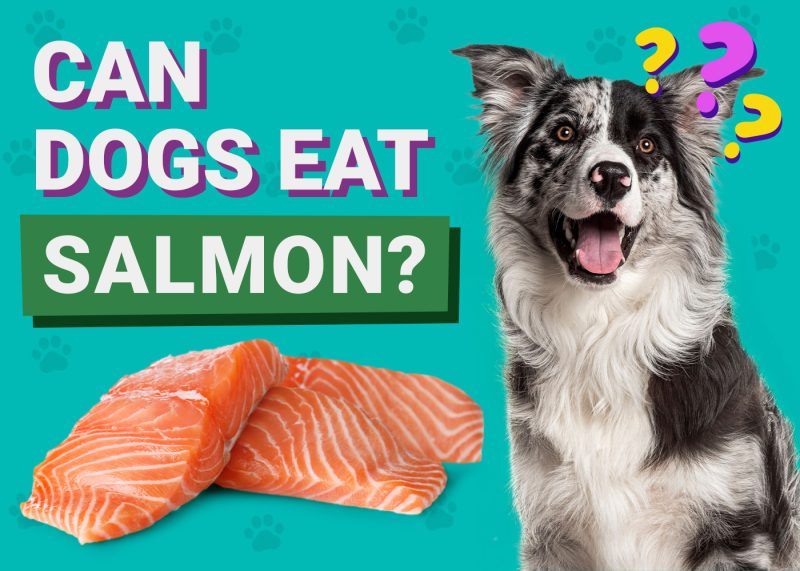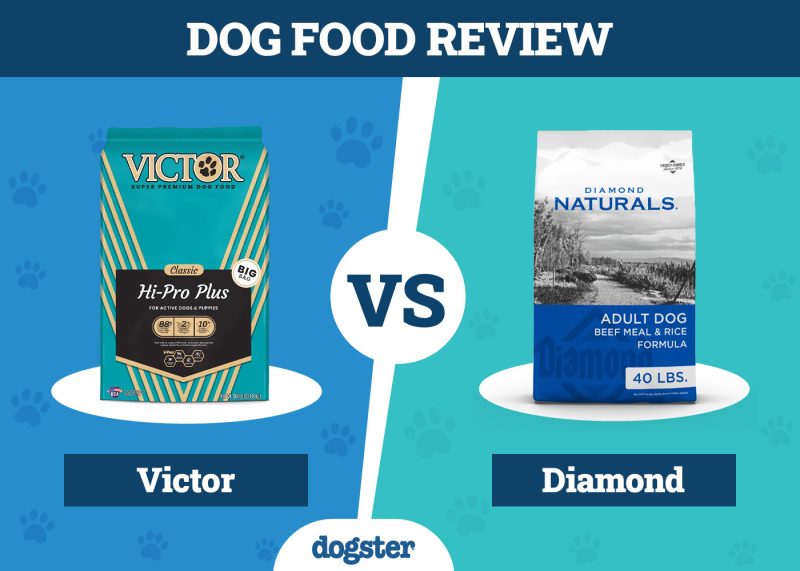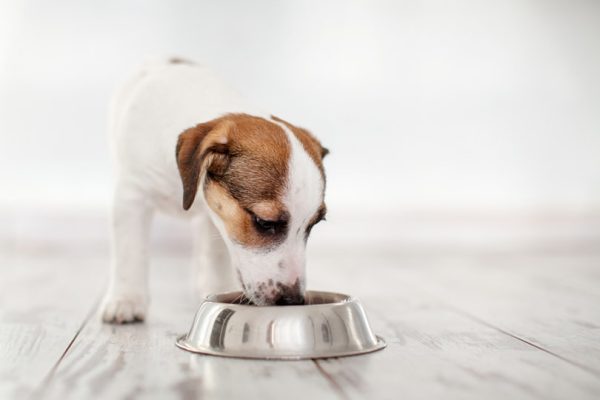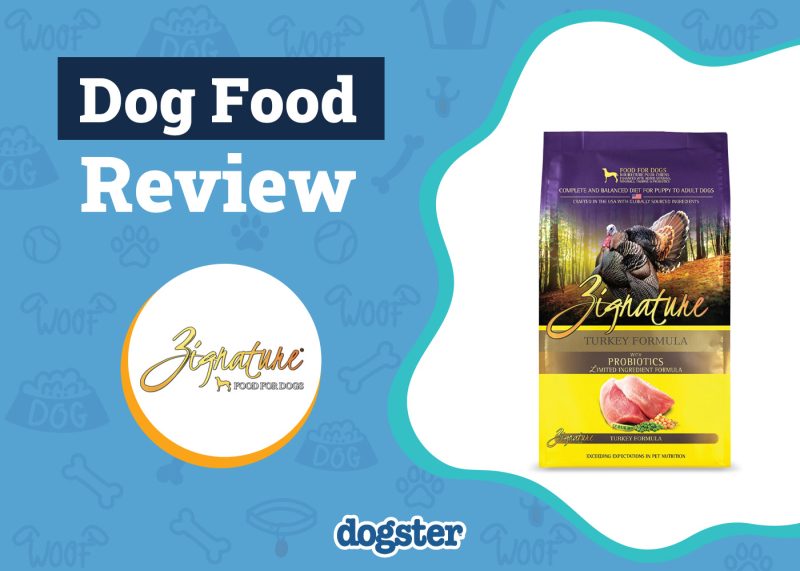In this article
If you are reading this article, the likelihood is that your dog has eaten a dead bird. This is a very common question vets get asked, as unsurprisingly, dogs often find dead birds when they are out on their walks. Curiosity gets the better of them, instincts kick in, one thing leads to another, and they decide to eat the bird before you can stop them. Is this dangerous for your dog?
Dogs, by nature, are hunters and scavengers. Lots of dog breeds have been specifically bred to stalk and catch birds and they often eat dead or decaying animals they encounter. Eating any dead animal poses a health risk. This is due to the fact that dead animals potentially contain toxins, parasites, viruses, and bacteria that can affect your dog and make them very poorly.

What to Do If Your Dog Ate a Dead Bird
Prevent Your Dog from Eating Anything Else
If your dog has eaten a dead bird the first thing you need to do is to stop your dog from eating the bird and remove as much of the bird from its mouth as you can, if your dog will allow you to.
Remove your dog from the area they found the dead bird in, as there may be other dead birds around depending on how the first one died. Stay with your dog and don’t let them out of your sight in case they try to find more birds.
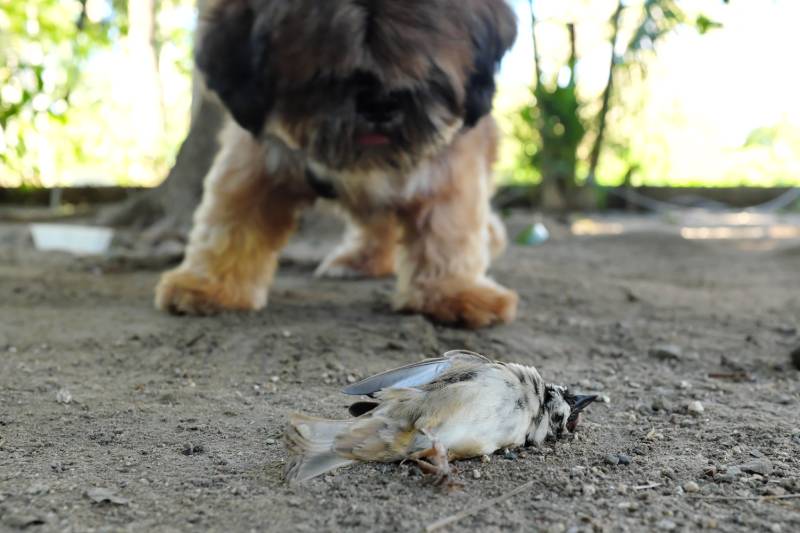
Call Your Vet Straight Away
Call your vet to tell them what has happened and try to give them as much information as possible. If you can identify the bird, let them know. If you had a chance to see if the bird had died recently or had been dead for a while this could be relevant too. If possible, note how much of the bird was eaten, or which parts. Your vet will also want to know how long ago the bird was eaten, what breed of dog you have, how old your dog is, how much they weigh, whether they are showing any signs of illness, and if they have any underlying health issues.
If you need to speak with a vet but can't get to one, head over to PangoVet. It's our online service where you can talk to a vet online and get the advice you need for your pet — all at an affordable price!
Follow Your Vet’s Instructions
After giving your vet the necessary information, your vet will decide whether your dog needs to come straight down to the hospital, or if they need to be monitored at home.
- If the bird was decaying or rotten
- If your dog ate a large amount including beaks and claws
- If your dog is showing signs of illness already
- If your dog has underlying health issues
- If your dog is very young or elderly or immunosuppressed in any way
Potential Risks of Eating a Dead Bird
If your dog does eat a bird, chances are they will be absolutely fine. Normally the bones and beak and claws don’t cause harm, especially if the bird hasn’t been dead for very long. Lots of owners actively feed their dogs raw food such as chicken, and since this is similar to what they would eat in the wild, they cope fairly well digesting uncooked bones.
The main dangers of eating dead birds are:
Risk of Botulism
Birds that live on or near water often are affected by avian botulism. This is a paralytic disease that can be fatal. It is caused by the ingestion of the bacteria Clostridium botulinum. If your dog eats a bird affected by the disease, they are at risk of contracting it too.

Toxin Exposure
If the bird your dog has eaten has ingested environmental pesticides, toxins, or poisonous substances, any of these can be easily passed onto your dog. Whether you see any signs depends on the amount of the poison or toxin ingested and the size and health status of your dog.
Intestinal Blockage or Perforation
Despite the fact dogs have evolved to eat birds and other animals whole, there is still a risk of intestinal blockages or perforation. Larger sharp bones can lacerate the lining of the gastrointestinal tract at any point if they are put under pressure whilst being moved through the body. If a larger bird has been consumed, the beak and claws can pose a risk for blockage or damage to the gastrointestinal tract too.
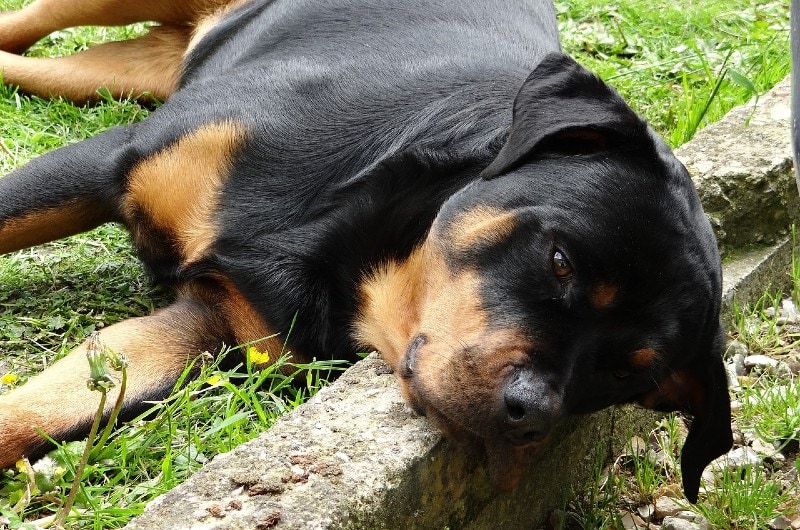
Salmonella Poisoning
Wild birds are often infected with salmonella. It resides in their intestines so if your dog eats the whole bird, they will be ingesting the bacteria. Salmonella is commonly found in raw poultry. Dogs don’t often show clinical signs if they are infected with salmonella, however, it is still possible for them to become ill with the bacteria. Even if they are asymptomatic, they do shed the bacteria and it is zoonotic, which means it can easily be passed onto any humans who have close contact with the dog. Infants, elderly people, and anyone who is immunocompromised are at high risk of severe disease from salmonella. Always practice good hygiene around dogs and don’t let your dog lick people’s faces.
Chlamydia
Another type of bacteria that can be passed onto dogs from birds is Chlamydia. The usual species passed on is Chlamydia psittaci and thankfully it can’t be passed from dogs to humans. It causes respiratory signs in dogs and can be picked up even if the dog doesn’t eat the bird but has contact with the feces. Dogs affected will show signs such as breathing difficulties, excessive panting, discharge from the eyes, and nasal discharge/sneezing.
There may be a slight delay between your dog eating the bird and clinical signs developing. It is always worth mentioning to your vet if your dog has eaten a bird, even if it seems a long time ago.
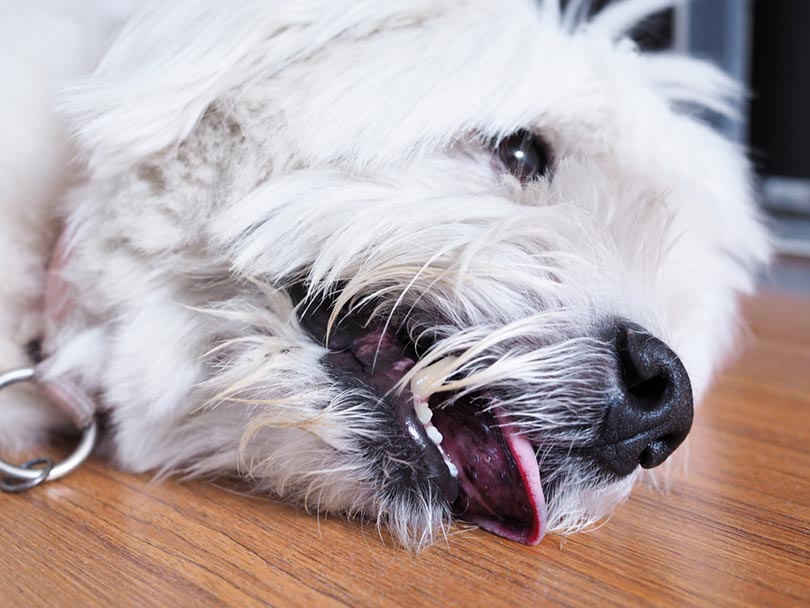
West Nile Virus
There is a very small chance your dog may contract a virus called West Nile Virus. This virus is transmitted to birds via mosquitos. The mosquitos gain the infection from biting infected birds. Some birds become infected by eating smaller birds that have already been infected.
Experimentally it has been documented that transfer of the virus is possible if dogs carry or consume infected animals. However, there has been no concrete evidence to show this occurs in the wild.
The virus can cause weakness, incoordination, head tremors, disorientation, and fever. If your dog eats a sick bird, the virus enters its body and can cause clinical signs.
Managing Your Dog at Home
Usually, there are no ill effects or only minor health problems. These can include vomiting and diarrhea, abdominal pain, lethargy, loss of appetite, and drinking more than usual.
Mild clinical signs normally last 24–48 hours. If you have spoken to your vet and they have advised that you stay at home and monitor your dog, there are a few things you can do to help them.
Ensure your dog has access to fresh water at all times and actively encourage them to drink. Feed a bland diet of small amounts more frequently than usual. Boiled chicken and plain rice are good options. Alternatively, you can purchase specific commercial food for sensitive stomachs. Don’t walk your dog or exercise them until they are back to normal. Let them rest and sleep as much as possible.
If after 48 hours your dog is still showing clinical signs, ring your vet back and arrange an appointment to be seen.
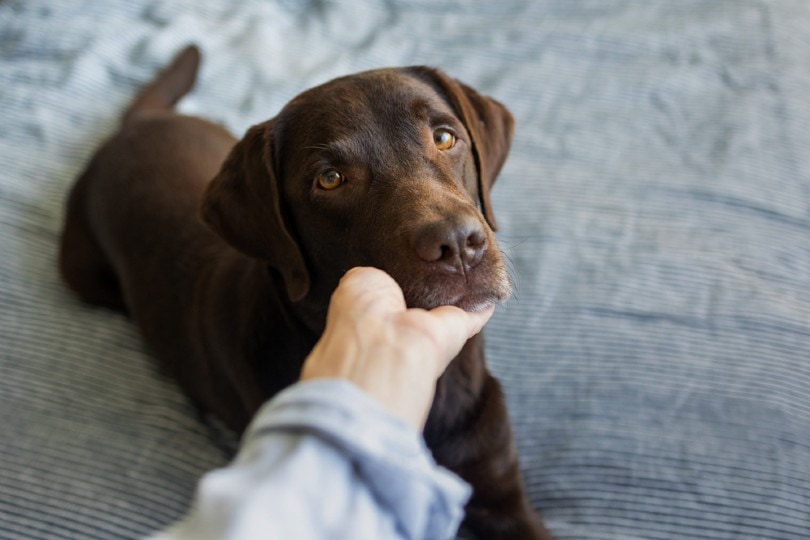
Why Do Dogs Eat Dead Birds?
Even if your dog is well-fed at home and completely satisfied by their food, they are still animals led by instincts so they will still chase smaller animals to hunt and catch them. Killing birds and other small animals is normal behavior for dogs. There are many breeds of dogs that have been bred specifically to hunt birds. Some are trained to catch birds but not kill them and bring them to their owners with them alive in their mouths. Others are bred and trained to kill. Even if your dog hasn’t been trained, they will still have instincts that cause them to chase birds.
Dead birds may appear and smell disgusting to humans, but to dogs, it is a really interesting smell. They are attracted to it, and they will be compelled to eat the bird if they can get access to it.
What If the Bird Has Been Dead for a Long Time?
If the bird has been dead and decaying, the risks to your dog are greater. There is a higher chance that the bird carcass has become infested with parasites that prey on rotting flesh, or bacteria and fungus. These can all cause disease in your dog, and many can be passed on to humans too.
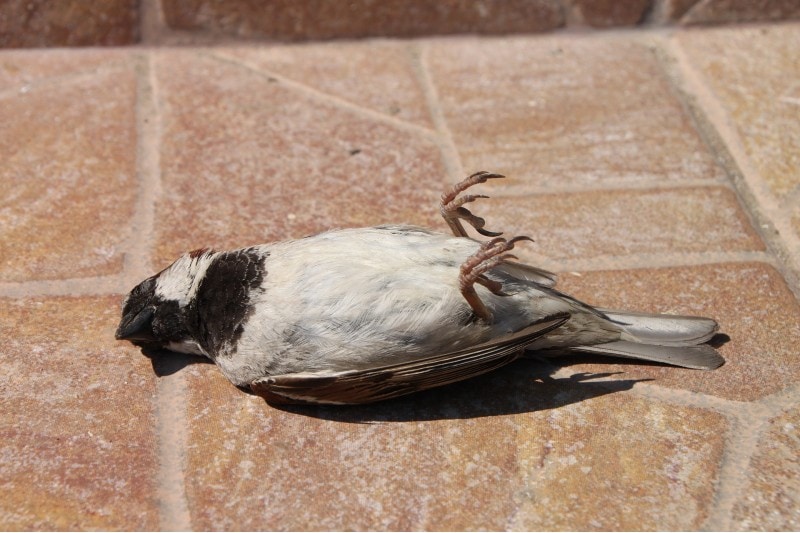
Tips for a Healthy Diet for Your Dog
It is important to feed your dog a healthy balanced diet to ensure they are in good physical condition and have all the nutrients they require. Feed your dog a complete diet that is age and breed-appropriate. Ensure your dog is getting the correct amount of calories for their size and lifestyle so that they don’t become under or overweight.
Homemade foods are an option, but make sure you do your research and feed only vet-approved recipes. Avoid human food as there are lots of things humans can eat that dogs can’t such as chocolate, garlic, and onions.

Conclusion
Should you be concerned if your dog ate a dead bird? In most cases, your dog will be okay. There are a few risks as mentioned above, but generally, they are well-equipped to eat and digest bird carcasses. If the carcass has been rotting for a while there are higher risks of them being ill.
If your dog is generally fit and healthy, only a small amount was consumed, if the bird was recently deceased, and if your dog isn’t showing any clinical signs of illness, your vet is likely to advise monitoring at home for the time being. If clinical signs develop and don’t resolve within 48 hours, contact your vet again to make another appointment.
Related Reads:
- My Dog Ate Cardboard: Should I Be Worried? (Vet Answer)
- My Dog Ate Rabbit Poop! Should I Be Worried? (Our Vet Answers)
- My Dog Ate a Squirrel: Should I Be Worried? Our Vet Takes a Look


